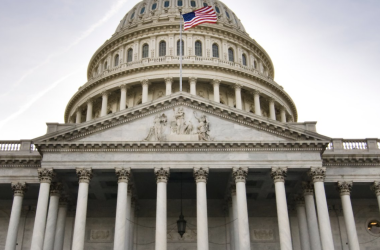Legislation which received no media attention and passed last session is making its impact in Hancock County.
A change jn the division on racetrack video lottery net terminal revenue is a boon for the cities of New Cumberland and Chester and a budgetary problem for Hancock County Commissioners. Previously Hancock County received 2% of the net terminal revenue. Under legislation sponsored by Del. Mark Zatezalo, the County now gets 1% and the cities of New Cumberland and Chester receive 1%. Of the four racetracks in WV, Mountaineer is the only one located in an unincorporated area, thus the reasoning to allocate the 2 % to the County Commission..
Until the racetrack video lottery revenue began a downward spiral there was enough money to go around for both the county and the cities. While the initial legislation gave 2 percent solely to the county, an agreement brokered by former State Senator Ed Bowman changed that. Under that agreement when the racetrack video lottery reached in excess of $2 million the excess revenue was divided among the cities per capita. In 2006, 2% of the racetrack video lottery revenue amounted to $4.6 million, but trouble was on the horizon as neighboring states added the machines and the gaming industry took a nose dive. In recent years the 2% of the net terminal income did not reach $2 million meaning the cities received nothing.
Two percent of the net terminal revenue was $1.2 million last year meaning New Cumberland and Chester’s portion of 1% percent is estimated to be $750,000.00 annually which they split equally. Because the legislation called for eligible cities to be “wholly” within Hancock County limits, Weirton receives no revenue. Newell, being unincorporated received none.
The legislation, which drew little or no attention during the session, came as a surprise to the County Commissioners.
How will it be resolved?
With the legislative session set to start in January, will there be an effort to change the distribution back to the original statute?
At this point both entities would typically be meeting with the Senators and Delegates representing their areas asking them to either return the code to it’s original form or to maintain the current revenue split.
HANCOCK COUNTY’S RESPONSE
Hancock County Commissioners will be dealing with the cut, but the July timing of when the legislation went into effect, means the full impact has yet to be felt.
“The revenue distribution passed what seemed like minutes after the 2023/24 budgets were approved” said Commissioner Eron Chek. “The calculation was made by Karen LaScola (finance director) as to how much the loss would be. We have not changed the budgets that were approved but have made it known that that additional funding is not an option.” Chek said that Del. Mark Zatezalo (R-2nd) seemed confident we can be made whole though he hasn’t said how. “We are staying in close contact with him.”
“Without a significant change in revenue, the budget for FY 24/25 will have significant changes. Those changes haven’t been discussed and will likely be very difficult decisions.” Said Chek.
County Commissioner Jeff Davis agrees that Zatezalo has promised the county will be “made whole” but he wonders where the money to make up that deficit will come from. He also emphasized that making things whole is not a onetime shot…. it’s an ongoing commitment.”
Davis, a former member of the House of Delegates, notes that finances will be tight this session. He said Public Employees Insurance will see a 10 ½ percent increase with teachers and public employees citing the need for a raise to make up the deficit.
While Davis would like the revenue level returned, he’s not sure what pot of money would be the source.
NEW CUMBERLAND & CHESTER RESPONSE
For the incorporated cities located entirely in Hancock, Chester and New Cumberland (Weirton is located partly in Brooke) the additional funds have been deposited into the general fund for much-needed projects.
Chester City Clerk Tara Ayers said “As for the money received this year, a portion will be going towards the most recent paving project that was completed. The cost of that paving project was almost $200,000.00 about $110,000.00 of that being paid with the American Rescue Plan and the other $90,000.00 is going to be going to be coming out of the general fund where the lottery proceeds have going for the past few months.”
New Cumberland was able to tackle two projects that will both beautify and improve the quality of life in the City according to City Clerk Tammy
Jenkins. The house at 600 Ridge Avenue will be purchased for $7500.00 and razed. The delipidated property has been an eyesore for years and the lot will be used for parking for the Community House where a variety of activities take place.
Jenkins also said resurfacing of the basketball and tennis courts in New Cumberland City Park will be done. Half of the money will be taken from the general fund (racetrack video lottery) and half from the Park Board.
NOW IS THE TIME
Neither the Municipal League nor the County officials or County Commissioner’s Association appears to be including the legislation on their legislative priorities. Both the cities and the county will need to keep a close watch to see if further change is coming
Davis laments the loss of racetrack video lottery and the days when profits were soaring.
“No business ever had the impact on Hancock county’s budget that Mountaineer did,” said Davis. “While Weirton Steel paid property taxes, 80 percent of that amount went to the schools. With video lottery, 100 percent came directly to us.”
Former County Commissioner John Sorrenti is remembered for saying during his term of office that there was no greater time to be a county commissioner in Hancock County than when video lottery revenue was at its peak. Area organizations had projects funded; repairs were made, etc.
Adding to the good times was the philanthropic management style of CEO Ted Arneault.
“He felt a connection to the community,” said Tamara Pettit, who was at the time public relations director for Mountaineer. “He realized that video lottery was only there because the citizens voted the local referendum in, and he responded to the needs of the community.”
This time of the year is especial;;y poignant for Pettit as she remembers how when she found out Mountaineer was giving turkeys to their employees and knew Weirton Steel had just had a major layoff, she made a call to Mark Glyptis, president of the then Independent Steelworkers Union, to ask if laid off steelworkers needed turkeys. Hearing of that, her sister, the late Marsha Webster, called and asked for 80 turkeys for New Cumberland Social Service. By the time the word spread, Mountaineer was donating and delivering 1,000 turkeys to the needy throughout Hancock County.
Dorothy Swearingen, of the New Cumberland Social Service Board, said there have been no turkeys from Mountaineer for several years
Has the gambling card played itself out as a viable industry in Hancock County? With Nucor’s trans loader facility likely to be located nearby Mountaineer, the racetrack’s acreage becomes more valuable for light manufacturing. The acreage is one of the few remaining flat parcels with access to rail and water. The parcel was rumored to be considered for the Nucor plant that ended up located in Mason County.
As the County looks towards future economic direction, it appears change may be in the game.


